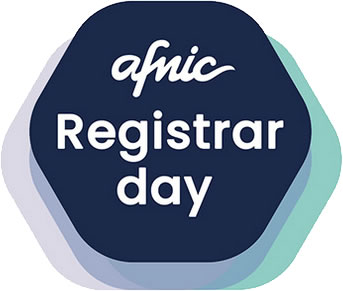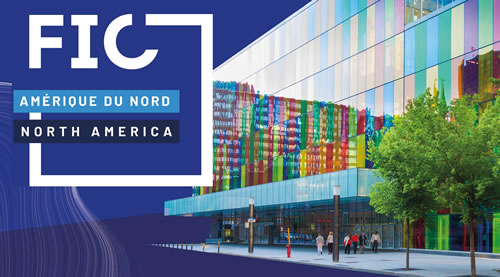Barely three months after the ICANN74 summit in The Hague, the one in Kuala Lumpur, 75th edition, has just been held. A second summit in hybrid mode, a mix of face-to-face and remote that claims almost 2000 participants from 112 countries, 60% of which were present on the spot. As if to better exist, two weeks before the particularly important appointment of a new secretary general at the head of the International Telecommunication Union, the technical counterpart of ICANN, ICANN proposed a dense summit. NAMESHIELD looks back over.
The sensitive appointment of a new general secretary at the head of the ITU
During the traditional opening ceremony of the ICANN75 summit, Goran Marby, the current head of the organization said “ICANN must be able to continue its mission for a single Internet“. This remark was referring to concerns about the upcoming appointment of a new general secretary to head the ITU, the UN agency in charge of regulating and planning telecommunications worldwide. After two mandates, the current secretary, the Chinese Houlin Zhao, will indeed give up his place to one of the two candidates in the running to succeed him: Doreen BOGDAN-MARTIN, an American or Rashid ISMAILOV, a Russian. Two candidates and two different visions of governance models as Goran Marby indicates: “One of the candidates wants the transfer of competences from the IETF (the Internet Engineering Task Force develops and promotes Internet standards) and ICANN to the UN“. During another question and answer session with the ICANN Board, the election was again invited in the exchanges since it was question of the increased risks of fragmentation of the DNS and the unique identifiers system if the ICANN missions are entrusted to the States. Later in the week, during a cross session between the ICANN Board and the GAC, the governmental body, the Russian representative of the GAC took advantage of a speech to answer in Russian to Goran Marby’s remarks, explaining that the Russian candidate at the head of the ITU does not want to dismantle the Internet. To better support his remarks he communicated the program of the candidate. Things calmed down at the end of ICANN75 during the traditional public forum, which we can regret that it lasted only one hour, a forum where once again the Russian representative of the GAC took the floor in English indicating that Russia is not against the Internet governance model and that it was necessary to take care to reflect the Russian position with accuracy.
The fragmentation of the ICANN model, a major concern
A sign that Internet fragmentation has become a major concern is that this topic was subject to a dedicated session. An interactive survey among the participants revealed that 53% of them consider that the Internet is already fragmented. The reasons mentioned are, on the one hand, the imbalance observed for access to the Internet from one continent to another, Africa being the least well endowed in this area. Other sources of fragmentation mentioned are the cost of subscriptions, which makes access impossible for the poorest, and the multiplication of laws at the state levels, which in some cases prevent full access to this resource, and in others prevent controlled access.
On the problems of connectivity in the world, Goran Marby emphasized the project “ICANN Ground”, a program under construction that will allow to solicit funds on specific needs. The endowment will come from the auctions of the new generic extensions round of 2012, some 233 million US dollars. Ukraine was the first state helped by ICANN with an emergency aid of 1 million US dollars made available in spring.
Is this good will enough to keep the unique Internet, totem of the organization? Indeed, apart from the political and societal fields, the technical alternatives, the so-called “alternative” roots, notably based on blockchain, have also been mentioned. These add new problems due to the lack of community and inter-community coordination with the DNS players. Name collisions indeed become inevitable.
So, to those who indicate that some actors are tempted to turn away from ICANN because of the length of the processes on the issues to be addressed, the organization answers that it is the price to pay for a community functioning by consensus. And on the subjects in debate, it is necessary to notice that there is no lack of them.
The period of amendments, the failure of the accuracy scoping team
As a sign that things are moving forward, the Registration Data Policy resulting from a revision of the Temporary Specification applied in response to the General Data Protection Regulation (GDPR) is entering its final stretch with implementation scheduled for early 2023. This policy will embed measures applied to registries and registrars on the collection, processing and storage of personal data related to domain names.
The Registration Data Access Protocol (RDAP), which is used to publish domain name registration data in the same way as Whois, will be gradually replaced by Whois from next year, with a transitional phase of 18 months, provided that the majority of stakeholders approve the project during a forthcoming consultation. The idea of introducing additional measures in the contracts of the stakeholders to fight against DNS abuse is also gaining ground.
Other topics are still in development, such as the next round of new generic extensions, which we discuss below, and the Standardized System to Access Data (SSAD), which is intended to standardize access to registration data in the case of legitimate requests. A prototype will be developed over a period of 9 months.
But we could also note what has been described as the “failure” of the Accuracy Scoping Team, a working group that was supposed to evaluate the measures on the accuracy of domain name registration data and to identify the possible policy gaps. Indeed, due to the lack of a legal basis to access the data and thus assess the accuracy of the data, their mission could not be carried out. Their work is therefore stopped.
A next series of new generic extensions under the impulse of internationalized extensions
The next series of new generic extensions, still in the framing phase, has been mentioned as a response to fragmentation thanks to internationalized extensions, extensions in native language, which allow, according to the words of Goran Marby, “to bring the Internet closer to its users“. He hopes that the next series of new generic extensions will be “a real success from the point of view of internationalized extensions because the Internet is too often perceived as a Western instrument“. The ICANN Board also mentioned these internationalized extensions as a response to the accelerated concentration of the market because they can help “raise awareness of the need for a diversified ecosystem“. Internationalized extensions should benefit from a new spotlight with the launch next year of the first Universal Acceptance Day, on February 16. This event is intended to mobilize the technical community to take into account this type of extensions and domain names.
Comments from NAMESHIELD
We could fear that with the proximity of this summit with the previous one, hardly three months have passed since the ICANN74, this summit lacks substance because of the lack of time to progress on the debated subjects. In fact, the third and last annual ICANN meeting is usually held at the end of October. It is necessary to notice that ICANN75 has not lacked substance, either on the subjects that were discussed or on the particularly high number of sessions: 167 and things move forward. As some participants have indicated, we can regret a certain lack of interactivity with, for example, a Public forum shortened to one hour and sometimes a bit simplistic answers like Internationalized gTLDs to mitigate the concentration of our sector. On this subject, we can remind that NAMESHIELD is an independent French provider.
If the year 2022 has seen fragmentation become a central topic of ICANN summits, one may wonder if this extremely dense summit, anticipated compared to previous years, did not seek to be perceived as a marker of the usefulness of the ICANN organization in the face of current challenges, a summit placed just before the decisive election of the new General Secretary of the IUT. To the numerous animated sessions in the arcane of the ICANN now makes place the silence to follow this determining designation for the perpetuity of the organization or as to better hold its breath.

















![[New gTLD] Launch of .KIDS](https://blog.nameshield.com/wp-content/uploads/2022/08/DotKids-Logo-Lg-new-1-1200x800.png)
![[New gTLD] Launch of .KIDS](https://blog.nameshield.com/wp-content/uploads/2022/08/DotKids-Logo-Lg-new-1.png)
